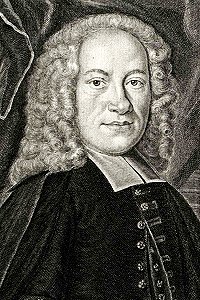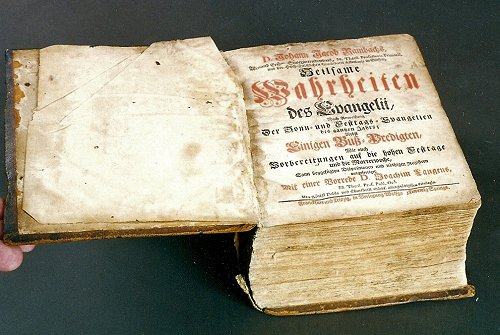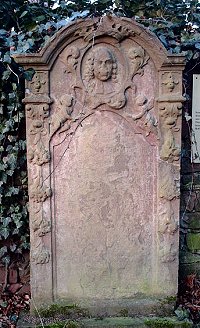Introduction

Born: February 24, 1693, Halle an der Saale, Germany.
Died: April 19, 1735, Giessen, Germany.
Buried: Old Cemetery, Giessen, Germany.



Born: February 24, 1693, Halle an der Saale, Germany.
Died: April 19, 1735, Giessen, Germany.
Buried: Old Cemetery, Giessen, Germany.


Johann was the son of Hans Jakob Rambach, a cabinet maker at Halle.
He left school in 1706, and entered his father’s workshop. However, in the autumn of 1707, he dislocated his ankle, and during his recovery, he turned to his school books, and his desire for learning reawakened.
Early in 1708, he entered the Latin School of the Halle Orphanage, and on October 27, 1712, he matriculated at the University of Halle as a medical student.
He soon turned his attention to theology, though, and became especially interested in Old Testament study under J. H. Michaelis.
In May 1715, he became one of Michaelis’ assistants, helping prepare his edition of the Hebrew Bible, for which he wrote the commentary on Ruth, Esther, Nehemiah, and other books.
His health began to suffer in the spring of 1719, and he accepted the invitation of Count von Henkel to stay at Pölzig, near Ronneburg, where he spent several months.
By August, he had recovered, and went to visit Jena, where a number of students had asked him to lecture. He settled in Jena in October 1719, living in the home of Professor Buddeus (J. F. Budde).
He graduated MA in March 1720, and in 1723 was appointed adjunct of the Theological faculty at Halle; as an inspector of the orphanage; in 1726 extraordinary professor of theology; and in 1727, after August Francke’s death, ordinary professor and preacher at the Schulkirche.
Here he was very popular, both as preacher and professor, but his colleagues’ jealousy induced him to accept an offer from Landgrave Ernst Ludwig of Hessen, who in 1731 invited him to Giessen as superintendent and first professor of theology (before leaving Halle, he received his Doctor of Divinity degree on June 28, 1731), and in August 1732, appointed him also director of the Paedagogium at Giessen.
In 1734, he almost accepted an offer of the first professorship of theology at the newly founded University of Göttingen, but at the request of the Landgrave, decided to stay in Giessen.